Test Tube 1979
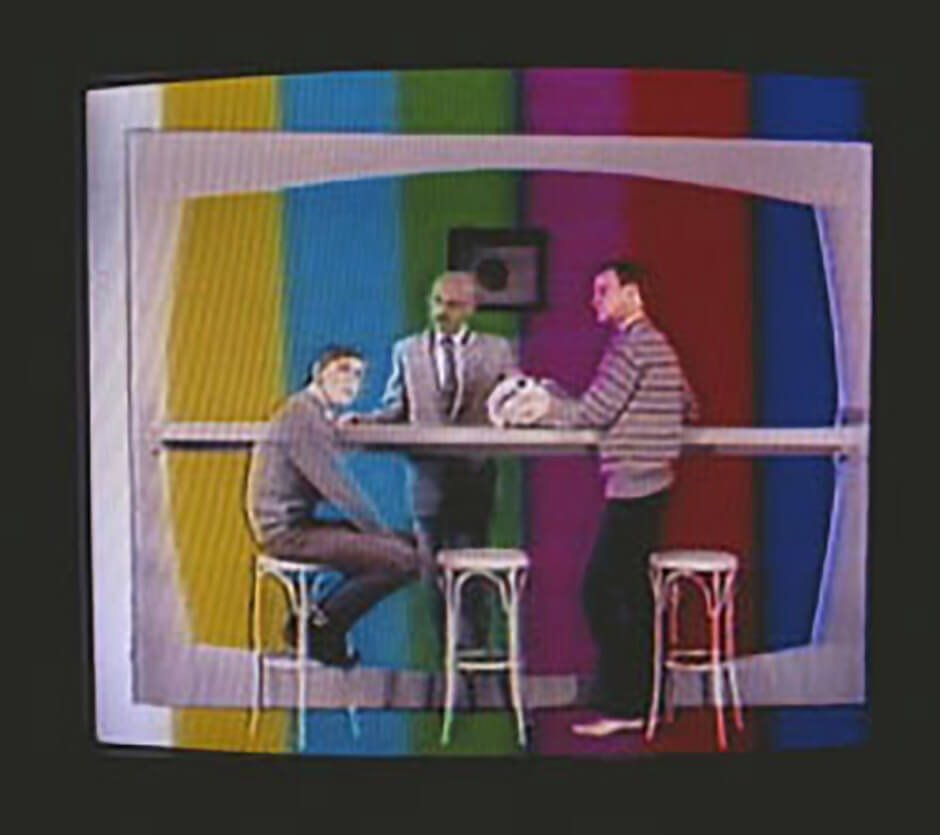
General Idea, Test Tube, 1979
Video, 28 min., 15 sec.
Various collections
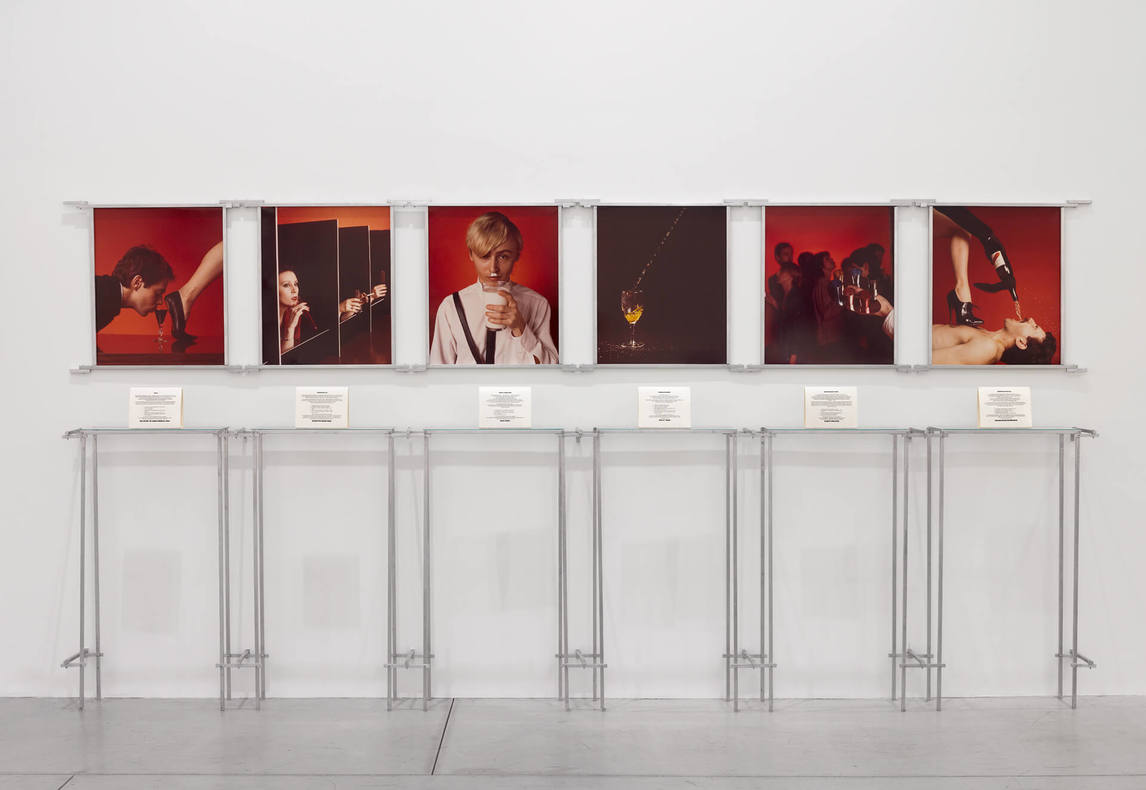
Test Tube demonstrates General Idea’s ongoing interest in critiquing the media through a sophisticated appropriation of popular television formats. The video speaks to the power of media and provides a prophetic commentary on art and commerce. The Stedelijk Museum and de Appel collaborated in bringing General Idea to Amsterdam. De Appel commissioned a video for broadcast on Dutch television, while the Stedelijk Museum provided a residency. The video was subsequently displayed in an exhibition at the Stedelijk Museum in 1979.
Like the majority of General Idea’s works in this era, Test Tube was related to The 1984 Miss General Idea Pavillion. The 1984 pageant and its associated Pavillion formed a larger conceptual structure for the group: General Idea invented narratives about these events and depicted them through their art projects. In this video, the group focuses on the Pavillion’s Colour Bar Lounge. Jorge Zontal explains how the lounge operates as a conceptual site: “We like to think of the Colour Bar as sort of a cultural laboratory, where we can experiment with new cultural mixes and here we isolate members of the art scene as our control group to test the effectiveness of our intoxicating cocktail.” Through this concept of the Colour Bar Lounge, the artists find a method for discussing how art can be consumable.
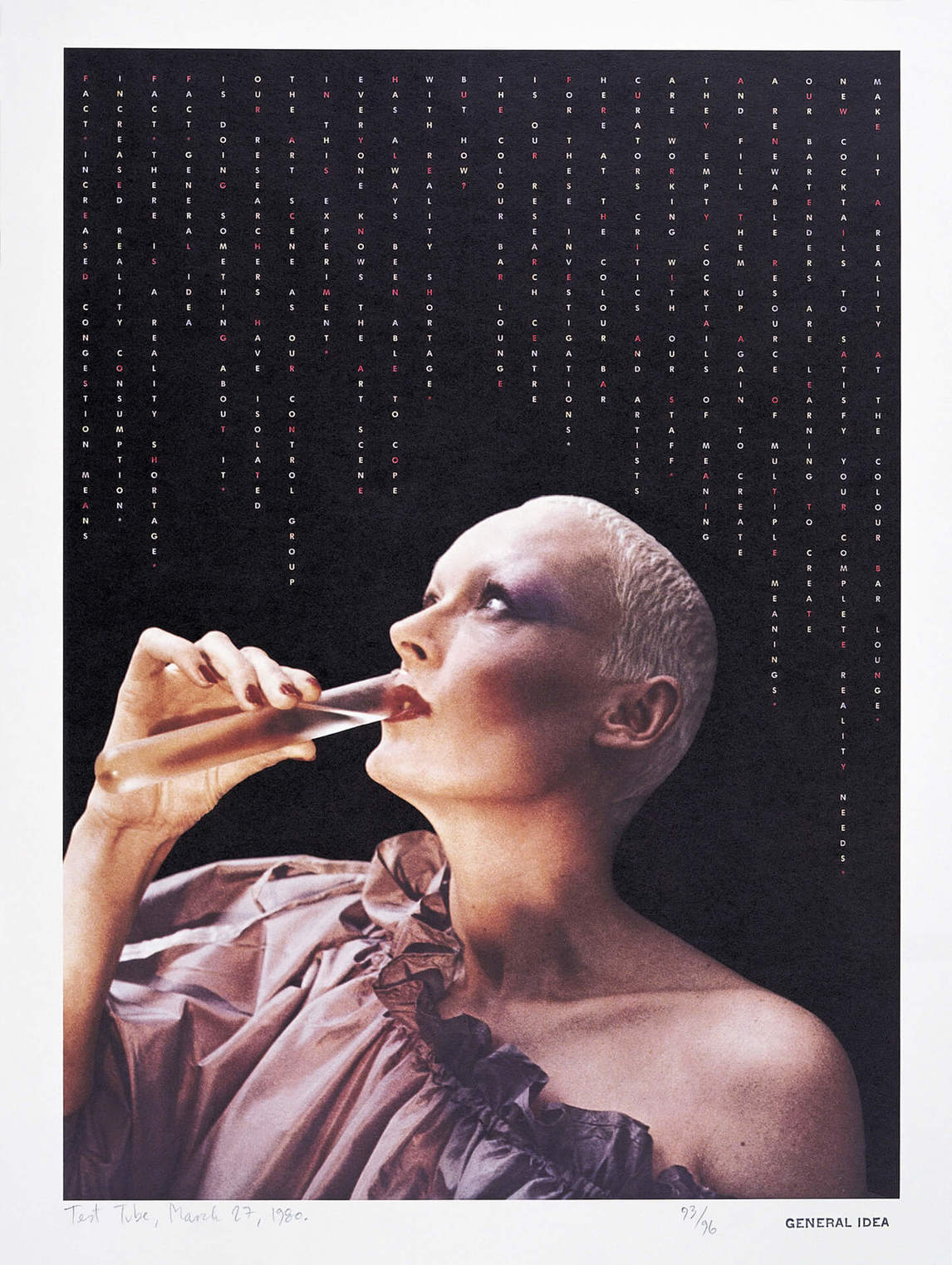
Test Tube quotes several popular television formats, including that of a news magazine, an infomercial, and a talk show. The core of the work is a soap opera–like narrative about Marianne, an artist and mother who is working on a series of paintings and debating whether or not to exhibit them. Throughout the video she struggles with her role as an artist and her desire to succeed in the art world. Marianne’s story concludes as her latest art show is deemed a success. Following this, she is pictured visiting the Colour Bar Lounge, where she tries one of the cocktails presented in a test tube.
Interspersed throughout Marianne’s story are clips of the artists discussing media and culture, as well as short advertisements for the Colour Bar Lounge. Reflecting the influence of communications theorist Marshall McLuhan (1911–1980), whose work suggests that media shape the messages they produce, the artists speak directly to the issue of television formats. Zontal notes, “Television isn’t just a neutral medium, television is a sensibility, a vision, a pattern of thinking.”
The commercials that appear throughout the video promote a series of cocktails, including Nazi Milk. Through these advertisements, General Idea directly addresses the connections between art and commerce. AA Bronson later explained, “Test Tube talks about commodification and the artist as a participant in the world of commodification.” Test Tube can be read in relation to the group’s earlier explorations of commerce, in projects such as The Belly Store, 1969.

 About the Author
About the Author
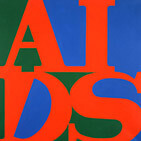 More Online Art Books
More Online Art Books
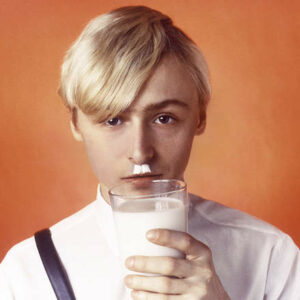 Acknowledgements
Acknowledgements